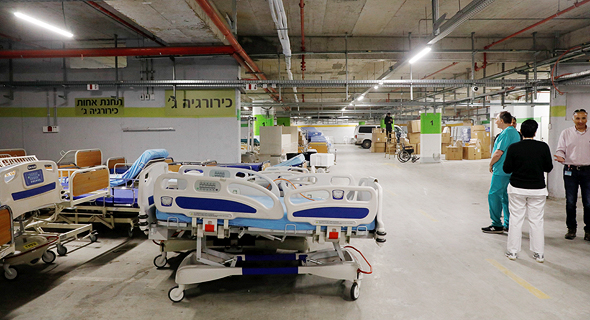Technion Researchers Develop Technology to Treat Covid-19 Patients With Acute Respiratory Distress Syndrome
The team’s technology is known as Liquid Foam Therapy (LIFT), and is intended to improve the distribution of surfactant, the liquid that coats the surface of alveoli in the lungs
17:3613.04.20
A team of researchers from Israeli research university Technion Israel Institute of Technology led by Josué Sznitman have developed a new technology they say could dramatically improve the efficacy of existing drugs for treating Acute Respiratory Distress Syndrome (ARDS), which is the leading cause of mortality in coronavirus (Covid-19) patients, the Technion announced Monday.
The team’s technology is known as Liquid Foam Therapy (LIFT), and is intended to dramatically improve the distribution of surfactant, the liquid that coats the surface of alveoli in the lungs, across the lungs. Surfactant reduces the energy required for breathing. It was recently shown that the Covid-19 virus kills the cells that secrete surfactant inside alveoli, after binding to a receptor on the cell’s surface, according to the Technion’s statement. Sznitman’s team hypothesizes that surfactant depletion may be particularly severe in Covid-19 related ARDS.
 New health units for coronavirus patients at Sheba Medical Center in Israel. Photo: Shaul Golan
New health units for coronavirus patients at Sheba Medical Center in Israel. Photo: Shaul Golan The team’s research, in which they examined the efficacy and safety of the technology in rats suffering from respiratory distress will soon be submitted to a scientific publication, according to the researchers. The treatment led to a dramatic improvement in functional lung indexes in the rats, including increased blood oxygen levels and decreased respiratory pressure.
The Technion also reported that China has already expressed interest in the treatment, and similar trials will soon be launched in the Asian country to bring the treatment as soon as possible for clinical use in human patients.



